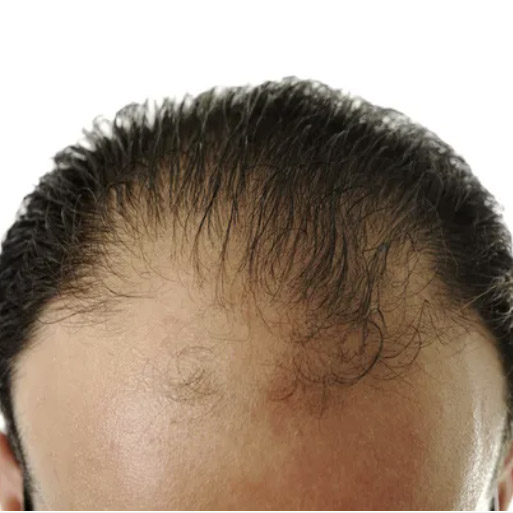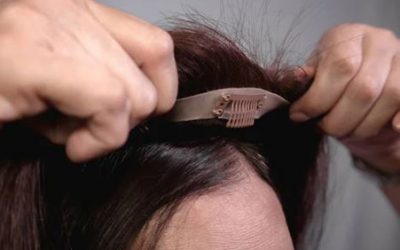Hair loss is a universal concern, affecting millions worldwide. While causes like stress, genetics, and age are well-known culprits, could hair loss also be a signal of more serious underlying health conditions? At Meraki Hair Loss Clinic in Brisbane, we aim to shed light on when hair loss might be more than just a cosmetic issue.
*Note: The team at Meraki Hair Loss Clinic are hair loss professionals, not doctors. Please speak to your GP or a specialist if you are concerned about your health.
Understanding Hair Loss Causes
The reasons for hair loss are diverse, encompassing factors such as stress, poor diet, smoking, medications, hormonal imbalance, and even family history. The American Academy of Dermatology states that about 80 million people in the United States alone are grappling with hair loss linked to genetic factors known as androgenetic alopecia.
However, beneath the surface of these common triggers, there could be instances where hair loss serves as an alarm for deeper health issues. Often, these cases come with a cluster of symptoms beyond just hair thinning.

Unraveling the Warning Signs
Here are a few situations where hair loss might be hinting at a more significant health concern:
Nutritional Deficiencies: If hair loss is accompanied by fatigue, lethargy, or a general sense of sluggishness, it could indicate a lack of essential nutrients. Deficiencies like zinc or iron can manifest as hair loss alongside symptoms such as weight loss, fatigue, or brittle nails. Ensuring a balanced diet rich in proteins, fruits, vegetables, and ample water can counter such concerns.
Hypothyroidism: Hair loss coupled with muscle aches could point to hypothyroidism, an autoimmune hormonal imbalance. This condition, more common among women, stems from reduced thyroid hormone levels. Symptoms include weight gain, thinning hair, fatigue, low heart rate, and muscle pain. Seeking medical intervention can help restore thyroid hormone levels.

Alopecia Areata: This autoimmune condition triggers hair loss by attacking hair follicles, leading to circular bald patches on the scalp and elsewhere. Alopecia totalis results in complete scalp hair loss, while Areata Universalis causes hair loss across the entire body. If you’re experiencing such widespread hair loss, consult a professional for diagnosis and management.
Lupus: Another autoimmune disorder, lupus prompts the immune system to attack its own cells and tissues, leading to inflammation. Symptoms include fever, skin rashes, hair loss, fatigue, and joint swelling. While hair loss might be a visible effect, it’s often accompanied by various systemic manifestations.
Medications: Hair loss can be a side effect of certain medications, such as cholesterol control drugs, blood thinners, and antidepressants. Even birth control pills, blood pressure medication, and arthritis treatments might contribute to hair loss. If you suspect your medication is causing hair loss, consulting your healthcare provider for alternative options is advisable.
The Importance of Early Intervention
At Meraki Hair Loss Clinic, we stress the significance of addressing hair loss concerns promptly. While genetics and lifestyle can contribute to hair thinning, monitoring for accompanying symptoms is crucial. Hair loss that occurs in tandem with fatigue, muscle pain, weight changes, or other systemic symptoms warrants a closer look.
Seeking professional guidance can help uncover potential health issues and develop a tailored approach to treatment. Get in touch with us today to discuss personalised hair loss solutions such as wigs, hair toppers, SMP treatment and more. No matter the underlying cause, we understand that discretion is important when dealing with hair loss, and offer consultations in our private rooms.





